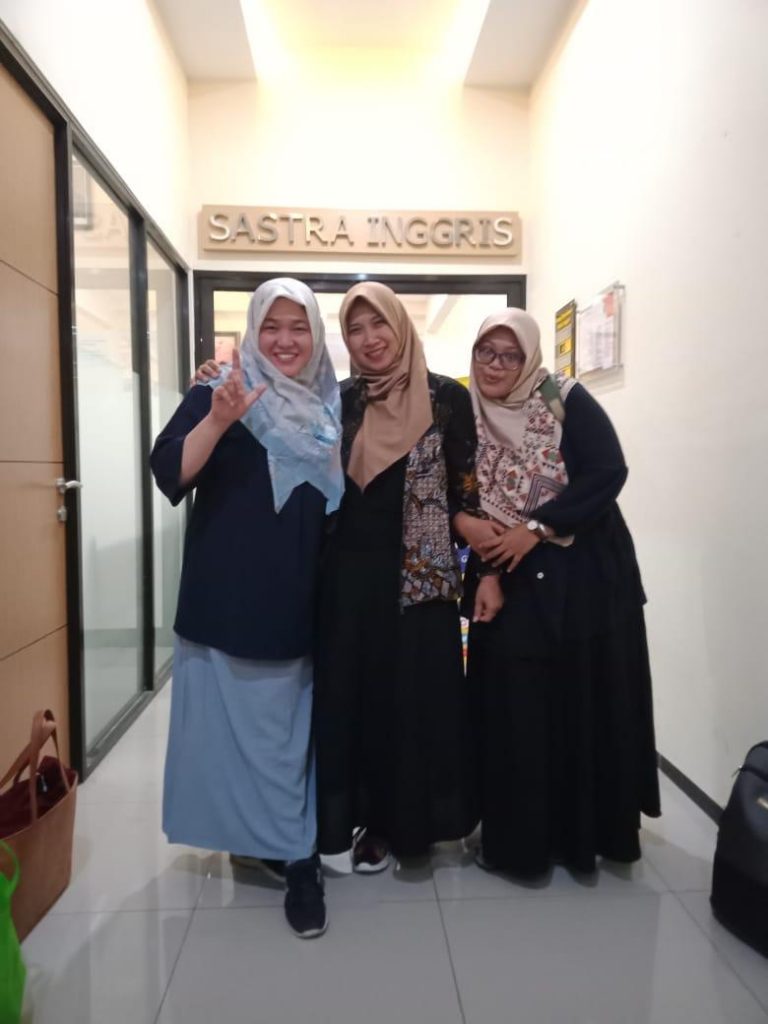
Collaborative Research Enhances Quality Education: A Study on Indonesian EFL Learners’ Self-Efficacy, Emotional Intelligence, and Speaking Achievement
Department of English
Lestari Setyowati
January 2, 2024
Kegiatan Penelitian
SDG 4
Figure 1. The photo of Dian Rahma and lecture from Department of English after conducting research
In a commendable demonstration of academic collaboration that aligns with Sustainable Development Goal 4 (SDG 4): Quality Education, researchers from Universitas Muhammadiyah Sidoarjo and Universitas Negeri Malang have published a significant journal article. The research, titled “‘Getting Stuck’: A Study of Indonesian EFL Learners’ Self-Efficacy, Emotional Intelligence, and Speaking Achievement,” was co-authored by Dian Rahma Santoso from the Study Program of English Education, Faculty of Psychology and Education, Universitas Muhammadiyah Sidoarjo, along with Ghozali Rusyid Affandi and Yazid Basthomi from Universitas Negeri Malang. This article was published in the reputable journal “Studies in English Language and Education,” indexed by Scopus.
The research explores crucial factors affecting English as a Foreign Language (EFL) learners in Indonesia, focusing on self-efficacy, emotional intelligence, and speaking achievement. These elements are essential in understanding and improving students’ performance in speaking English, a vital skill in today’s globalized world. By examining the interplay between these factors, the study provides valuable insights that can help educators develop more effective teaching strategies, thereby enhancing the quality of education.
Self-efficacy, or the belief in one’s ability to succeed, is a critical component in language learning. The study reveals how students’ confidence levels impact their speaking performance. Additionally, emotional intelligence, which involves recognizing and managing one’s emotions and those of others, plays a significant role in learners’ ability to communicate effectively. By identifying these relationships, the research offers practical recommendations for educators to support their students better, fostering an environment that promotes both academic and personal growth.
The collaboration between Dian Rahma Santoso, Ghozali Rusyid Affandi, and Yazid Basthomi underscores the importance of interdisciplinary and inter-university partnerships in advancing educational research. This partnership exemplifies SDG 17: Partnerships for the Goals, highlighting how collaborative efforts can lead to high-impact research outputs that benefit the broader educational community.
The publication of this study in a Scopus-indexed journal attests to the quality and relevance of the research. It not only contributes to the academic discourse on EFL education but also provides a robust evidence base for improving teaching practices. By addressing key psychological and emotional factors that influence language learning, this research supports the goal of providing inclusive and equitable quality education for all.
In conclusion, the collaborative research by Dian Rahma Santoso, Ghozali Rusyid Affandi, and Yazid Basthomi represents a significant contribution to the field of EFL education. Their work highlights the critical role of self-efficacy and emotional intelligence in language learning, offering valuable insights for educators and policymakers. This study exemplifies the impact of academic collaboration in advancing the Sustainable Development Goals, particularly in enhancing the quality of education and fostering effective partnerships.